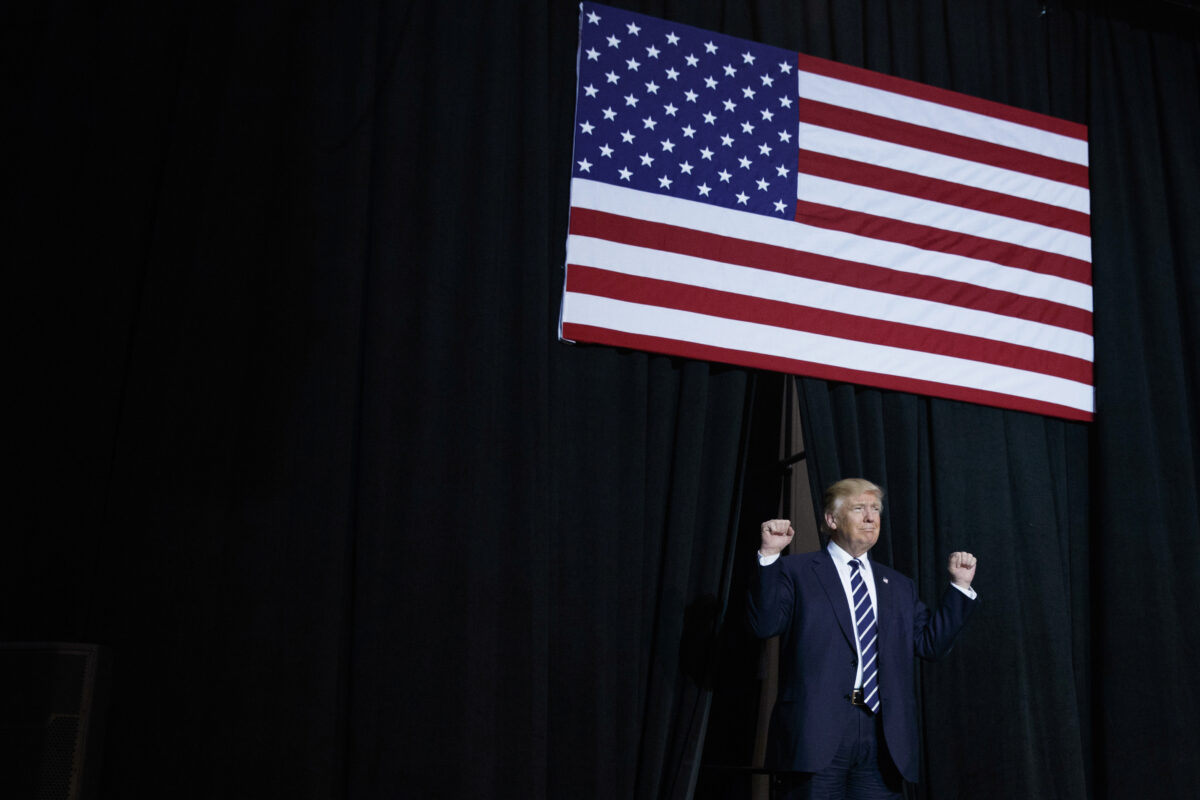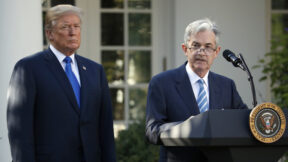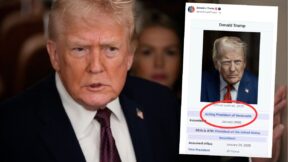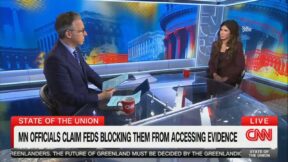The Media Isn’t Why Americans Think Trump Is Fascist — His Words and Actions Are

(AP Photo/ Evan Vucci)
Jimmy Kimmel has been suspended by ABC before, but this time, it feels different. The network yanked him after he politicized the assassination of Charlie Kirk by mocking MAGA’s frantic attempts to frame the shooter as anyone but one of their own. The punchline wasn’t sharp, the timing was ugly, and the response was swift. Affiliates pulled the show, Disney benched him indefinitely, and the former president quietly got precisely what he’s been demanding for years.
President Donald Trump has long pressed ABC to fire Kimmel. He’s complained about him in interviews, told Jonathan Karl that the network “hates” him, and all but called for Disney to shut him up. Now Kimmel is off the air, and the once virulently anti-Cancel Culture Trump-world gets to claim a win and pivot to “Consequence Culture.” For Disney executives, it may have looked like risk management. To many of us, it looked like corporate cowardice.
And here’s where it connects to something larger: The growing MAGA talking point that the real problem isn’t Trump’s behavior, but the media’s insistence on calling it what it is.
The rhetorical move is simple and effective. When critics call out authoritarian behavior, the first defense is not to rebut the charge on its merits but to attack the messenger. “The media made people think he’s a fascist” is the canned response. It flips the script. Scrutiny becomes persecution, reporting becomes propaganda, and the subject of the reporting becomes the aggrieved party.
Elon Musk recently boosted a viral post from MAGA influencer Eric Schmitt that blamed news media reporting for Americans’ growing belief that Trump is behaving in a fascistic way. Schmitt cited polls that revealed 87% of Democrats see Trump as a fascist, 47% say “the rise of fascism” is their top political concern, and more than half of left-leaning Americans even told a pollster they think political violence against Trump could be justified. Musk’s caption? “Extremely troubling.”
The implication is clear: People only believe Trump is fascist because the media told them so. That’s the inversion — the gaslighting. Never mind Trump’s own record, the story goes; the media created this hysteria. The press is the problem.
But that’s nonsense. The polling is not evidence of media bias. It’s evidence that Americans can read and listen.
Let’s level set with a definition. Fascism is not a synonym for Hitler, nor is it shorthand for mass atrocities. The use of the word has been irresponsibly conflated on both MSNBC and Fox News, which reveals probably more about US declining education standards than anything else.
But fascism is a political tradition rooted in authoritarianism, built on a cult of personality, and obsessed with silencing dissent. Yes, Hitler and Mussolini were fascists, but so too were Franco and Marcos. Like so many other things in today’s post-modern age, there is a spectrum of authoritarianism. The early fascists rose by demonizing outsiders, glorifying violence, delegitimizing elections, and demanding loyalty oaths. Sound familiar?
Do Trump and his supporters have some legitimate beef with left-leaning media using irresponsible hyperbole going back to 2017? Absolutely. We have not arrived at this situation without some blame to share across the partisan media spectrum. But let’s not pretend that Trump hasn’t acted as an authoritarian strong man, particularly in his Project 2025-planned second term.
Trump has called immigrants “poisoning the blood” of the country. He pressured officials to “find” votes. He praised January 6 rioters seeking to “stop the steal” of a free and fair election as “patriots” and hinted at using the military for mass deportations. And then he pardoned them. He has called journalists “the enemy of the people.” He’s told police not to be “too nice” to suspects. He claimed immigrants are “poisoning the blood of our country.” He has repeatedly attacked the press as “the enemy of the people. These aren’t rumors whispered into CNN cameras. They’re on tape.
When people conclude that this behavior resembles fascism, that isn’t brainwashing. It’s logic.
Seen in this light, Kimmel’s suspension becomes more than a programming call. It’s a case study in how pressure works. A star mocks Trump, Trump rails at ABC, the network gets nervous, and eventually the comic disappears from the air. No laws need to change. No jackboots required. Just enough intimidation to make institutions flinch.
That chill is the point. It allows defenders to say: “See? The media is the real fascist here, silencing dissent and poisoning minds.” Meanwhile, Trump accumulates more evidence of the very thing they say is a mirage.
The press should never be above criticism. But pretending that Americans only believe Trump is behaving like an authoritarian because The New York Times ran a scary headline is gaslighting. It erases the long public record and asks us to doubt our own eyes.
Disney seems unlikely to restore Kimmel any time soon — opting instead to keep him in limbo while cooler heads prevail. Either way, the lesson lingers. Corporations are learning that bowing to Trump can be easier than resisting him. And Trump’s defenders are learning that if they keep blaming the media loudly enough, they can make even fascism sound like a branding issue.
That’s not on the press. That’s on Trump.
This is an opinion piece. The views expressed in this article are those of just the author.





Comments
↓ Scroll down for comments ↓